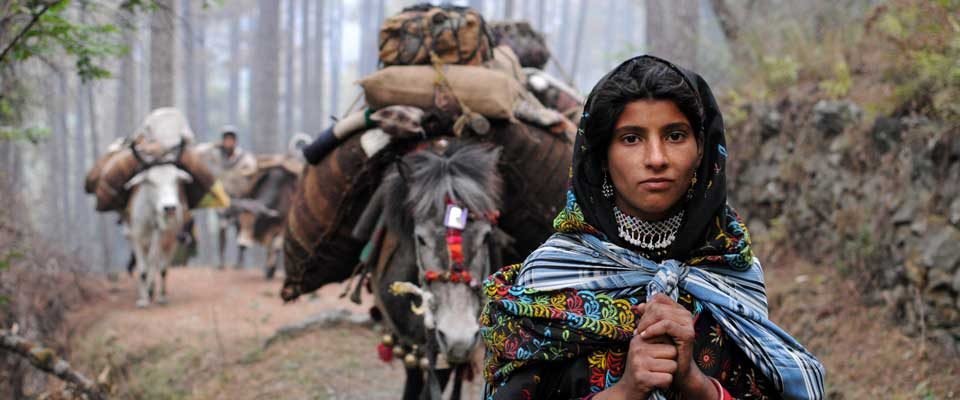BY BAL K. GUPTA*
Many authors are analyzing Revocation of Article 370 as a problem related to Kashmiri Pandits. Other, particularly Human Rights organizations, are analyzing it as human rights of Kashmiri Muslims. None of them are listing the problems of PoK refugees (refugees from Pakistan-Occupied-Kashmir), Muslim Gujjars, WPR (West Pakistan refugees) settled in J&K, Dalits, minority Sikhs, Ladakhis etc, who have suffered discrimination since 1947. Revocation of Article 370 tremendously benefit all the above sections of population. WPR and some Dalits have been treated worse than Rohingyas in Mynamar.
WPR like Manmohan Singh, Inder Gujral, Gulzari Lal Nanda became Prime Ministers of India and Lal Kishan Advani, the Deputy PM of India. But they did not provide any help for WPR to vote in J&K after many representations in Delhi and J&K since 1947. Can you think of people seeking asylum for 72 years in USA or any other country?
Following are additional facts that I think support the revocation of Article 370 and will benefit other marginalized people of J&K.
- POK Refugees: During 1947 Pathan and Pakistani invasion of Jammu and Kashmir, the entire Hindu and Sikh population was ethnically cleansed, most of the men massacred or women abducted. Majority of those refugees were pushed out of J&K to India by the then regime. Their descendants number around 1.7 million and spread out in J&K, Delhi, Punjab, Haryana and Rajasthan. Many of them married POK refugee women settled in J&K. But their wives cannot inherit the property of their parents because of Article 370 and 35A. POK refugees settled in India, unlike Kashmiri Pandits, cannot buy property in J&K, the land of their ancestors. With the revocation of Article 370, some of them will be able to inherit and buy property in J&K.
- Gujjars and Bakerwals: About 3.4 million nomadic Muslim Gujjars and Bakerwals live in the mountains of J&K. Hindu and Sikh Gujjars in Punjab, Haryana, Rajasthan etc. are listed as SC/ST and enjoy all the benefits of Indian government as SC/ST. Because of Article 370, J&K Muslim Gujjars were deprived of all the benefits under the Indian Constitution. With the revocation of Article 370, J&K Gujjars will also be able to get all the benefits as SC/ST. Muslim Gujjars are the first to bear the brunt of Pakistani firing in hilly districts of Pooncch, Rajouri etc. and have asked for raising a Gujjar Battalion in the Indian Army to defend the border.
- West Pakistan Refugees (WPR): During 1947 Partition, many Hindu and Sikh refugees from Sialkot, Jhelum and Rawalpindi districts of Pakistan crossed over and settled in border districts of Kathua, Samba and Jammu. Their number is around 400,000-500,000. They are stateless citizens of J&K for the last 72 years and the poorest of the poor. With the revocation of Article 370, WPR will be able to vote, buy property and get educational benefits.
- Poor Dalits: There is no special privileges and assembly quota for Dalits in J&K, who number around 2.0 million. Dalits in J&K consist of Hindus, Christians and Sikhs. Many of them are stateless citizens of J&K (like WPR) because they were brought from Punjab during a strike of sweepers by during the regime of Bakshi Ghulam Mohammed, chief minister of J&K during 1950’s. With the revocation of Article 370, Dalits will be able to get their due share in government jobs and benefits. That is the reason Ms. Mayawati’s party BSP voted for revocation of Article 370. (Baba Saheb Ambedkar was not in favor of Article 370).
- Minority Sikhs: There are about 2 % minority Sikhs in J&K, mostly settled in Jammu Province. They almost have no representation in J&K assembly and state government. They are mostly in transport business, Jat farmers and many are in Army and Border Security Force. With revocation of Article 370, they will be able to get their due share and voice in J&K government.
- Ladakh: It consists of Ladakh (majority Buddhists) and Kargil (majority Shias). Ladakhis have always been dominated by Sunni Muslims of Kashmir Valley and considered second class citizens of J&K. By revocation of Article 370, Ladakh has become Union Territory and will be on par with Delhi, Chandigarh, Pondicherry etc. Army has already raised a battalion of Ladakh Scouts in jobs and business.
*The author was born in Mirpur (PoK) and is the author of “Forgotten Atrocities: Memoirs of a Survivor of the 1947 Partition of India”.



